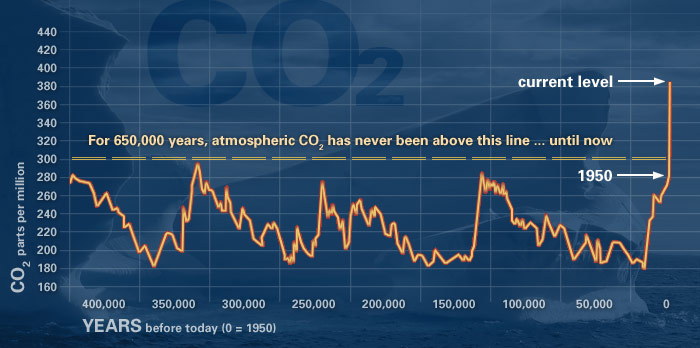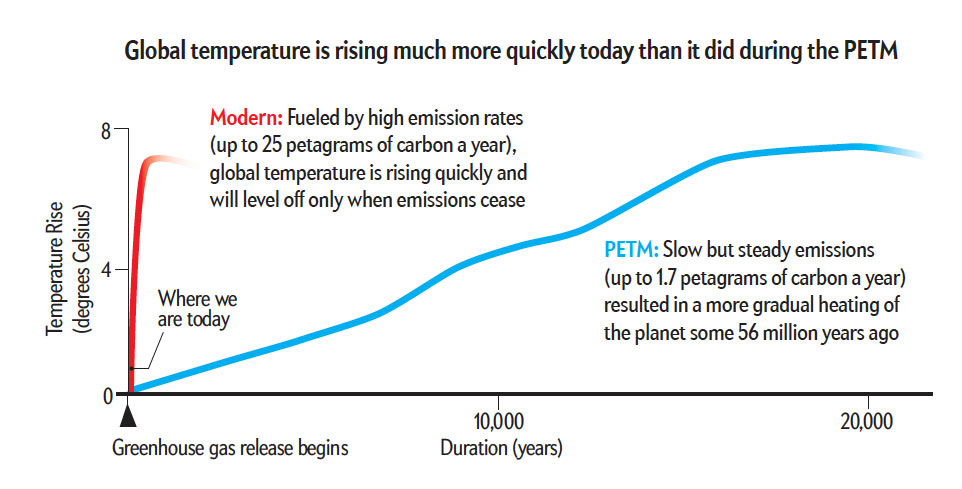Climate Change - Hyperthermal Events
What is the worst-case scenario for climate change?
The geological record shows that when the atmosphere suddenly changes, there are big effects on living things.

Every time in the geological past that gigatonnes of CO2 entered the atmosphere, the changes were very significant.
The geological record contains examples of major temperature changes, associated with changes in atmospheric CO2.
Events in which the temperature rose by several degrees in a geologically short time are called hyperthermals.
For example, the PETM, around 56 million years ago:

"There used to be subtropical forests near the poles 50 million years ago, and that doesn’t sound so bad.
"But the fossil record closer to the equator is really poor, and that may be an indication that life was extremely stressed during these warm periods.
"If over half the surface area of the planet becomes inhospitable, it will not render Earth uninhabitable, but it will be unrecognizable and existentially challenging for the majority of the people, species and communities on Earth."
Some researchers suggest the Palaeocene-Eocene Thermal Maximum, might be partly connected to an impact event that ignited forests.
There hasn't been a hyperthermal event for tens of millions of years.
During the PETM, a massive influx of carbon flooded the atmosphere and Earth warmed by 5 - 8 C degrees.
Some of them are linked to fossil fuel deposits being ignited by volcanic action.
However, in those natural events, the process usually took tens of thousands of years, and only affected a limited amount of fossil fuel.
Human activity is replicating that process on a much bigger scale, and in only a few hundred years.
This time, human activity is producing something potentially very extreme.
Currently CO2 is rising at 20 ppm per decade.
Currently CO2 is rising at 20 ppm per decade.
Nothing like this has happened in the time of Homo sapiens.
Uncontrolled addition of CO2 to the atmosphere is dangerous and will have serious consequences.
This is an accidental experiment on Earth's systems, which will change the planet beyond imagination.
A recent research paper contains this quote:
"Given currently available records, we demonstrate that the present anthropogenic carbon release rate is unprecedented throughout the Cenozoic (past 66 million years)."
This graph compares the current situation with the PETM event around 56 million years ago:

We are doing something very extraordinary......
The Holocene, by chance, had a mostly stable climate.
That stability allowed agriculture to develop, which allowed human population to rise rapidly.
It's unlikely that agriculture was possible until then, which is why humans remained as hunter-gatherers for over 200,000 years.

That comfortable window of time is closing.
That's the weakest link in human society.
Climate change creates the dangers of an increasing number of 'failed states' taken over by warlords, potentially leading to a 'failed world'.